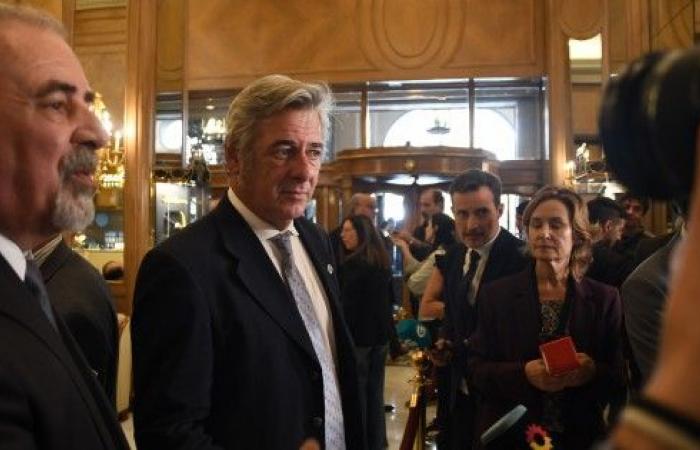The extra long holiday gave the government time on the exchange front. On the last business day, the Central Bank established the highest volume of dollar sales in the Milei era in the middle of the high export liquidation season. That’s why the one who didn’t rest was Toto Caputo, who was working throughout the weekend. According to reports, he is studying measures to start a hot week.
According to the projections of the Ministry of Economy, the entity led by Santiago Bausilli should be purchasing about USD 300 million a day by the end of June, but on the last business day, last Wednesday, it had to part with USD 156 million.
With these numbers, the focus is on the market reaction. From reading the Staff Level Agreement published by the IMF last Monday, it is clear that there are two economic models in conflict: that of the government and that of the organization.
These are regimes whose fundamental pillars differ diametrically. The IMF explicitly requested a system of managed floating of the exchange rate, classic of Latin American liberal economies, which, far from eliminating the BCRA, plays an indispensable role. Likewise, in this scheme, monetary policy aims to strengthen the local currency, in the opposite direction to dollarization. This background discussion is echoed in the debate on the appropriate pace of rise in the exchange rate, the interest rate and the evolution of prices.
The IMF requires Caputo to devalue before talking about fresh funds
Meanwhile, the government persists on its path: cheap dollar, negative rates, stifled spending and martial fiscalism. Without deviating from this path, Toto analyzes fronts, variables and possible measures. During these hours the minister is working overtime to turn a eve that is looking hot.
Exporters have unsold grains in their possession for the equivalent of USD 13.97 billion. The alarming thing is that USD 2,612 million entered in May, a drop of USD 1,600 million compared to the USD 4,212 million entered in the same month of 2023, 38% less than during the drought.
In any case, the financing channels, of foreign currency income, are only two. The commercial route or taking on debt. External financing requires time that Caputo does not have. It remains to seduce the countryside to encourage the liquidation of exports.
Exporters have unsold grains in their possession for the equivalent of USD 13.97 billion. The alarming thing is that USD 2,612 million entered in May, a drop of USD 1,600 million compared to the USD 4,212 million entered in the same month of 2023, 38% less than during the drought.
One of the ideas in motion is to eliminate the regulations imposed by the Central Bank during the administration of Alberto Fernández by which producers who have more than 5% of the crop are penalized with a 20% surcharge on loans. soybean or wheat production. This penalty expired at the end of last year but to the surprise of many, the current government of President Javier Milei decided to extend it for another six months.
Another carrot is the continuity of the “dollar blend” that expires at the end of the month, this exchange rate mix, composed of 80% at the official price and 20% in cash with settlement (CCL).
Caputo bets on a loan from Basel and the European Bank to avoid devaluation
That the government decides to extend the validity of this differential exchange rate for the agro-export complex is an open challenge to the IMF’s recommendations. The agency stressed in the latest staff level agreement that the authorities “remain committed to eliminating all multiple exchange rates and exchange restrictions, starting with the most distorting measures, including the elimination of the 80:20 preferential export regime.”
As soon as the publication of the Fund’s report was announced, the Secretary of Finance Pablo Quirno reposted in “If the Base Law is approved, the reduction in the country tax is not associated with any devaluation. Nor will the current 80/20 or the 2% crawling peg be affected.”
The question is about the discipline of the national government to the manual of the multilateral credit organization. “Assuring that the blend will not be touched does not say anything about whether it is extended or not. At the moment the only concrete thing is that it remains in force without alterations until June 30 as planned,” a source who regularly visits the Economy Minister.






